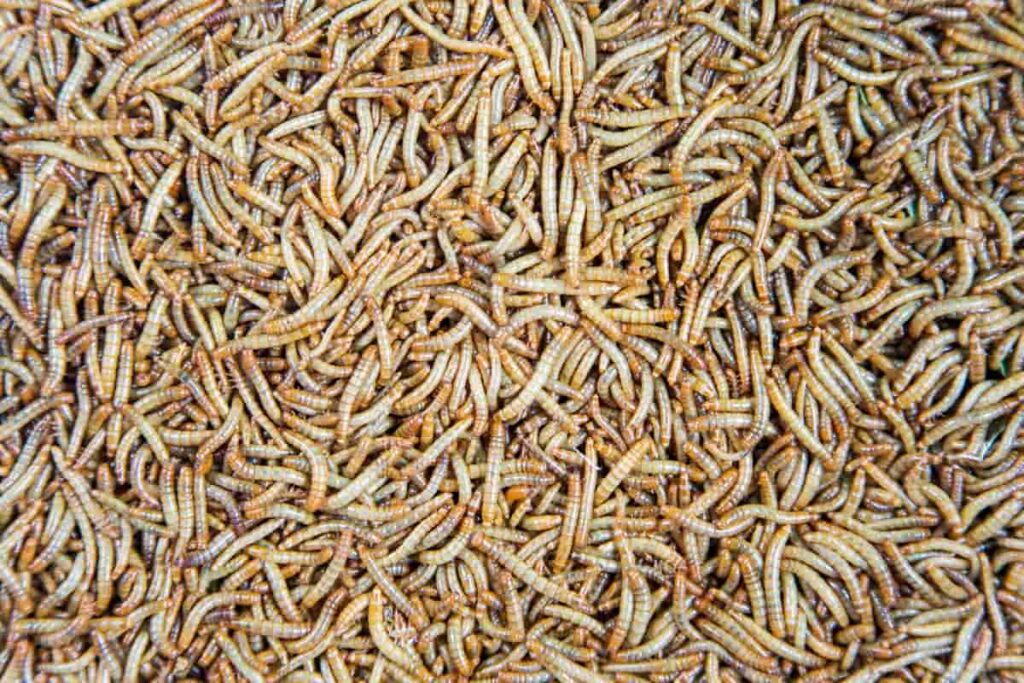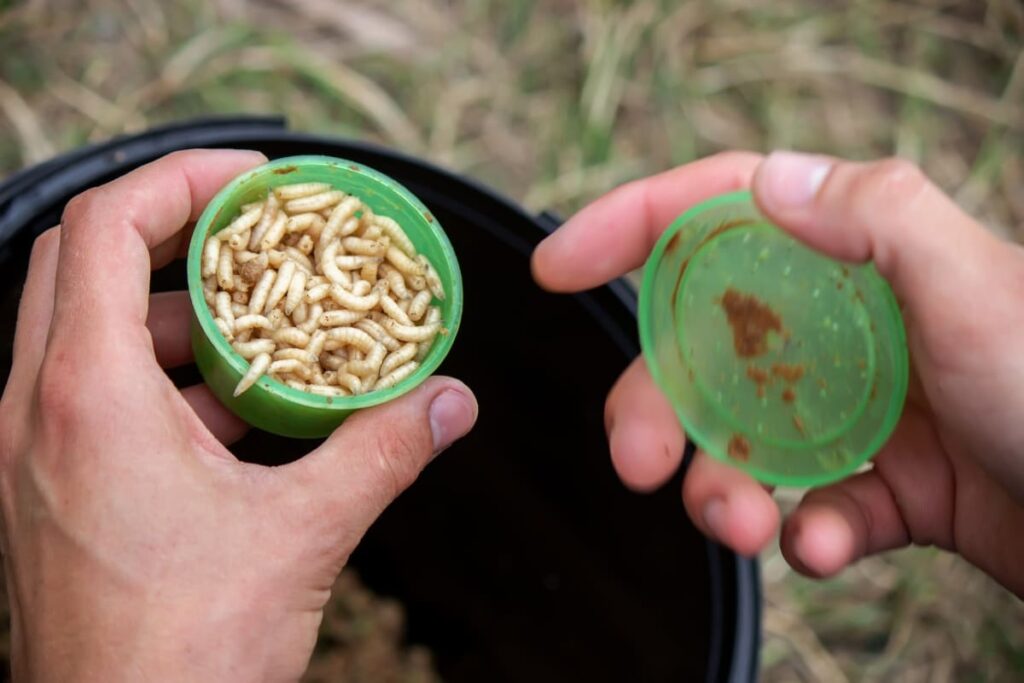Black soldier fly farming is gaining attention as an innovative and sustainable method for waste management and protein production. This approach involves breeding and raising black soldier flies, a species known for their efficiency in converting organic waste into high-quality protein. The black soldier fly production process starts with setting up a breeding environment, typically a black soldier fly breeding box, where the flies can reproduce and lay eggs.

The process also includes considerations for the overall setup cost and profit analysis of black soldier fly farming, examining its viability as a profitable business venture. The black soldier fly business is emerging as a promising sector due to its low environmental impact and high yield of valuable products, such as animal feed or fertilizer, derived from the larvae.
Black Soldier Fly Farming
Benefits of Black Soldier Fly Farming
Firstly, it’s an effective way to reduce organic waste, as black soldier fly larvae can consume large amounts of biodegradable material, turning it into valuable biomass. This process helps in reducing the burden on traditional waste management systems. Additionally, the farming of these flies contributes to producing high-quality protein sources, which can be used in animal feeds.
The black soldier fly feed conversion ratio is highly efficient, meaning they can convert feed into body mass more effectively compared to traditional livestock. This efficient conversion contributes to the overall profitability of black soldier fly farming. Moreover, the process is environmentally friendly, with a low carbon footprint, and does not require extensive land or water resources.
Black Soldier Fly Life Cycle
Comprehending the life stages of the black soldier fly is essential for effective agriculture. The cycle starts when adult flies deposit their eggs in a suitable setting, typically a damp and nutrient-rich substrate. These eggs subsequently hatch into larvae, which play a pivotal role in transforming waste materials.
The larvae go through several stages of growth, during which they consume organic waste voraciously. After reaching maturity, they transform into pupae, eventually emerging as adult flies, ready to reproduce and continue the cycle. This knowledge is essential for managing the black soldier fly production efficiently, ensuring continuous and sustainable operation of the farm.
Black Soldier Fly Larvae and Their Role in Waste Conversion
The larvae of black soldier flies play a pivotal role in the farming process, primarily due to their remarkable ability to convert organic waste into nutrient-rich biomass. These larvae have a high feed conversion ratio, efficiently transforming the waste they consume into body mass.
In case you missed it: How to Get Rid of Fruit Fly in Cucurbits: Symptoms, Treatment, Chemical, and Organic Control

This process not only helps in managing waste but also produces larvae that are high in protein and fat content, making them an excellent feedstock for poultry, fish, and even pets. The dry mass of black soldier fly larvae plays a crucial role in assessing their suitability as a feedstock, serving as an indicator of their nutritional composition and overall quality.
Setting up a Black Soldier Fly Farm
Setting up a black soldier fly farm involves several key steps to ensure efficient production and profitability. The initial setup includes creating a breeding area, typically using a black soldier fly breeding box, and establishing a controlled environment for the flies to lay eggs. The farm must also have adequate space for the larvae to grow and process the organic waste.
The initial expenses for establishing a black soldier fly farm can fluctuate based on its size and location, typically necessitating a moderate outlay for infrastructure and equipment. Additionally, understanding the feed conversion ratio and optimal conditions for larvae growth is crucial for maximizing the efficiency and yield of the farm.
Harvesting and Processing Black Soldier Fly Products
Harvesting and processing the products of black soldier fly farming are key steps in the production cycle. The harvesting process involves collecting the mature larvae, which are then processed into various forms, such as dried larvae or pelletized feed. This stage is critical in determining the quality and value of the end products. The processing methods aim to preserve the nutritional content of the larvae, ensuring that they are suitable for use as high-protein animal feed. Efficient harvesting and processing techniques are essential for maintaining the profitability of the black soldier fly business.
Marketing and Sales of Black Soldier Fly Products
The final phase in black soldier fly farming is the marketing and sales of the produced goods. This involves identifying potential markets for the larvae and by-products, such as the animal feed industry or organic fertilizer sector. Effective marketing strategies are crucial for establishing the black soldier fly business in the competitive market.
Sales strategies should focus on highlighting the environmental benefits and high nutritional value of the products, appealing to consumers who are increasingly looking for sustainable and eco-friendly options. Establishing strong market connections and understanding customer needs are vital for the successful commercialization of black soldier fly products.
Cost Analysis of Black Soldier Fly Farming
The cost analysis of black soldier fly farming is an essential aspect for anyone considering entering this business. Initial costs primarily involve setting up the breeding and rearing facilities. The expense of a black soldier fly breeding box, along with the cost of constructing or adapting a space for larval growth, can vary significantly based on scale and location.
In case you missed it: Pomegranate Fruit Fly: Symptoms, Treatment, Effective Management, Chemical, and Organic Control

On average, small-scale setups might require an investment ranging from $5,000 to $15,000, while larger operations could exceed $50,000. Operational costs include feeding the larvae (often using waste materials, which can be low-cost or free), utility bills, and labor. Additionally, periodic maintenance and upgrades to the farming infrastructure can contribute to ongoing expenses.
Profit Analysis of Black Soldier Fly Farming
Profit analysis of black soldier fly farming reveals a promising outlook due to the high demand for sustainable protein sources and organic waste management solutions. The income from a black soldier fly farm can stem from selling the larvae as animal feed; the adult flies for breeding, and the by-products like frass as organic fertilizer.
Profit margins can vary but are generally favorable; for instance, a well-managed small to medium-sized farm could see profit margins of around 20% to 40%. These figures can be higher in large-scale operations with efficient processes and strong market connections. It’s important to note that profitability is influenced by factors such as market prices for larvae and by-products, operational efficiency, and the cost of raw materials.
Legal and Regulatory Requirements for Black Soldier Fly Farming
Adhering to legal and regulatory mandates is essential in black soldier fly farming. These requirements may differ by location but typically involve securing the requisite licenses and permits to operate a farming enterprise. These may involve environmental permits, especially considering the use of organic waste and health and safety certifications for producing animal feed.
In many regions, specific licenses may be required for breeding and rearing insects for commercial purposes. Potential farmers need to research and adhere to local laws and regulations, including zoning laws, waste management regulations, and food safety standards. Compliance not only ensures legal operation but also enhances credibility and trustworthiness in the market.
Conclusion
Black soldier fly farming presents a unique and sustainable opportunity in the realms of waste management and protein production. The farming process, from setting up breeding facilities to marketing the end products, involves careful planning and execution.
- Profitable Village Farming Business Ideas in 2024
- High-Yield Aquaculture: Fast-Growing Fish for Farming
- Effective Fish Pond Construction Techniques for Beginners
- Irrigation and Water Management in Pineapple Farming
- Blossom to Harvest: Mastering Flowering and Pollination in Papaya Farming
- Pig Fattening Essentials: From Selection to Sale for Beginners
- Raising Wagyu Cattle: A Complete Guide for Premium Beef Production
- Soil Types and Their Water Holding Capacity
- Optimizing Irrigation Schedules for Coconut Groves for Enhanced Yield
